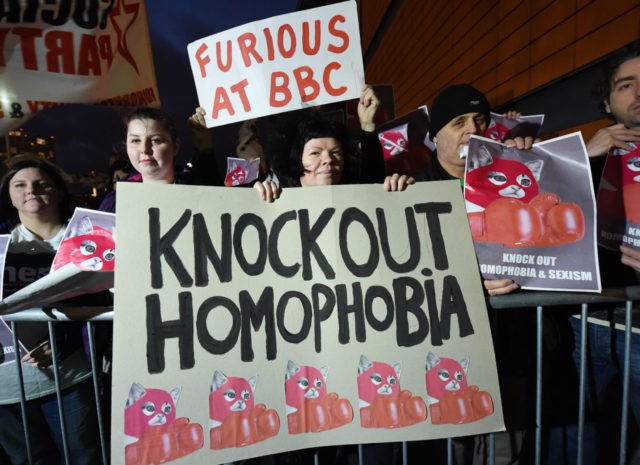At least 10 percent of BBC employees should be Lesbian, Gay, Bisexual or Transsexual (LGBT), a government policy paper has said.
The target is nearly twice that of broadcasting rival Channel 4, which, as a broadcaster tasked with promoting diversity, has a target of 6 percent.
Most large employers report that between two and five percent of their workforce are LGBT, a figure thought to be roughly in line with the population at large, although the precise figure is difficult to assess as it relies on self-identification.
But the BBC has been set a target far above that figure: a recent white paper setting out the terms of the BBC’s charter until 2022, stipulates 10 percent of the Corporation’s workforce should be LGBT by 2020. It is unclear where the target figure derives from.
Similar targets have been set for Black and Minority Ethnic (BAME) employees (15 percent of the workforce, in line with national demographics), and disabled (8 percent). It also aims to have a “gender balanced senior leadership team by 2020.”
The BBC must “enshrine a commitment to diversity in the Charter, as part of a new overall commitment to ensuring the BBC serves all audiences,” the paper states, adding: “The BBC should be at the forefront of representing diversity both on and off screen”
And it insists that “the BBC has an important role in reflecting and serving the full range of diverse communities within the UK, including in terms of age, gender, sexual orientation, religion, disability, ethnicity, nation and region.”
Rival broadcaster Channel 4 also has a specific licencing commitment to represent diverse communities, yet has a target of just 6 percent LGBT employees by 2020, up from 2.4 percent at the moment.
But while the LGBT target appears to be something of an afterthought on the part of the authors, the white paper is strident in its insistence that BAME communities be better represented in the media.
“The government notes the broadcasting sector’s commitment to tackling diversity and welcomes the positive interventions … However, the pace of change is too slow,” the paper insists.
“Our television screens and radio waves still do not adequately reflect the society we live in. The BBC has recognised that it must do better, and set out its commitment to tackling diversity on and off screen in its diversity strategy.”
Earlier this month the BBC came under fire for advertising a number of highly desirable paid internships through a government backed charity, which prohibited white people from applying.

COMMENTS
Please let us know if you're having issues with commenting.